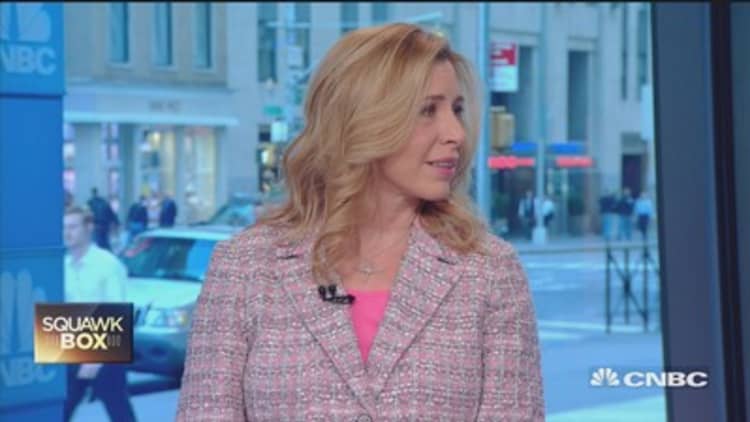
The yield on 10-year Treasurys may be heading for a larger-than-expected move that could disrupt stock markets, Bessemer Trust's chief investment officer said Tuesday.
"I think bonds are the scariest thing out there right now," Rebecca Patterson said on CNBC's "Squawk Box."
Patterson said she is concerned because consensus has aligned to a great degree around the idea that bond yields will only move slightly higher by the end of 2015. The U.S. 10-year Treasury is currently yielding about 2.1 percent, and the Street expects the yield to rise only to about 2.5 percent, she said.
"It doesn't mean great minds are all wrong, but usually when you have consensus view this widely held, it's wrong. So bond yields I think have a very real chance of either being quite a bit higher," or falling, contrary to expectations of a mild rise, she said.
Read More Investors flee US stocks at financial-crisis levels
Investors must be wary, because if bond prices correct as the U.S. economy gains some momentum, a period of volatility for equities could ensue, at least in the short term, she said.
The Federal Reserve is widely expected to raise its benchmark interest rate by 25 to 50 basis points. While that increase is not significant, some market watchers have said bond yields could spike suddenly as investors anticipate the path of future rate hikes.
Patterson also said 2015 is shaping up to be the year of "revenge of the global investor."
Following two incredibly strong years for U.S. large-cap stocks, it may be the international investor's time to shine now that the European Central Bank and the Bank of Japan are taking stimulus measures and their weak currencies are helping exporters, she said.
"This is a reminder that taking a globally diversified approach to equity investing, you're never going to get exactly right tilts to every country at exactly the right time, but if you take that broader view, over time, you get both better returns and less volatility along the way, which means you get better compounded returns. You make more money," she said.

U.S. stocks markets are roughly flat for the year, but once they break out, they should move higher as the economy and corporate earnings improve, Ed Keon, portfolio manager at Quantitative Management Associates, said in a separate interview.
But the big winner in that event may not be U.S stocks, but European equities, he added.
"If the U.S. economy is stronger, as I think it is, and if wage growth is stronger, as I think it will be, that might prompt the Fed to move a little sooner than the market expects. That should help the dollar and then, ironically, that may help the earnings of companies in Europe more than it helps the earnings in the United States," he told "Squawk Box."
Many market watchers have blamed the strengthening dollar for weak first quarter earnings growth. A strong dollar makes U.S. goods more expensive abroad and dilutes the value of earnings when American companies bring profits back home.


